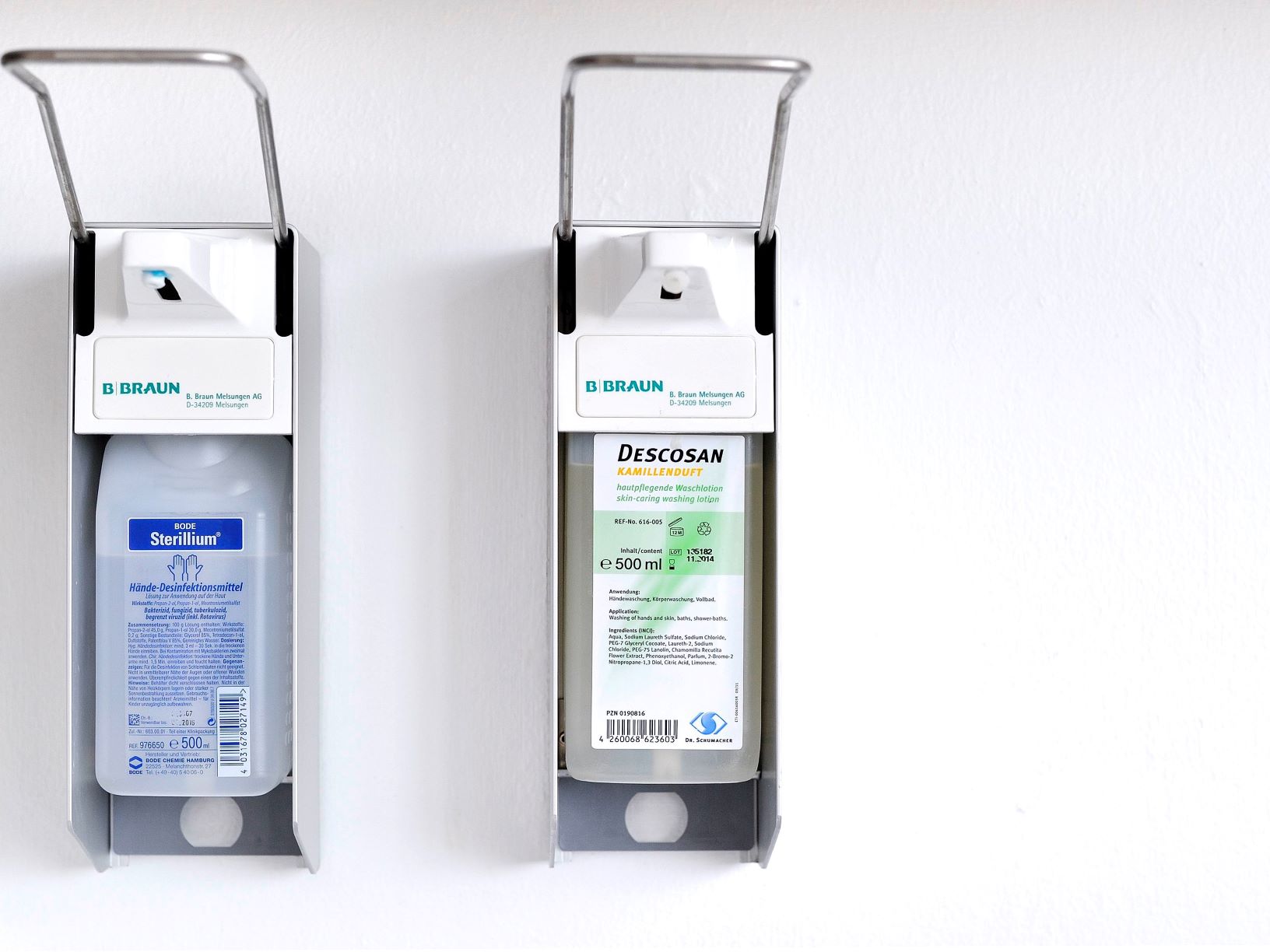Limitations of lease of Czech flats due to COVID-19. Ban on termination. Ban on rent increase in Czech Republic
Act on Certain Measures to Mitigate the Impact of the SARS-CoV-2 Coronavirus Epidemic on lease of promises for housing purposes, on the Beneficiary of a Loan Provided by the State Housing Development Fund and in connection with the Provision of Housing and Non-Residential Premises
On 1.4.2020 was published on the website of the Government of the Czech Republic the Bill on Certain Measures to Mitigate the Effects of the SARS-CoV-2 Coronavirus Epidemic on lease of promises for housing purposes, on the Beneficiary of the Loan Provided by the State Housing Development Fund that was approved by Resolution of the Government of the Czech Republic dated 1 April 2020 under No. 374/2020.
You can learn more about the new bill on certain measures to mitigate the effects of the SARS CoV-2 coronavirus epidemic on business lessees in our article Prohibition of termination of business lease due to COVID-19 in Czech Republic.
Bill on Certain Measures to Mitigate the Impact of the SARS-CoV-2 Coronavirus Epidemic on lease of promises for housing purposes, on the Beneficiary of the Loan Provided by the State Housing Development Fund with explanatory report was subsequently submitted to the Chamber of Deputies on 2.4.2020 and should be discussed atmeeting no. 44 on 7 April 2020.
The Bill was approved by the Chamber of Deputies as amended on 8.4.2020 and should be discussed atthe 20th Senate meeting (since 16 April 2020) as item 12. It is clear from the approved wording that, compared to a simple one-section version of a similar institute in Germany, it has become a very complicated institute which will not be easy to use for lessees and will not have to provide the lessee with sufficient relief due to the relatively short repayment period.
On April 27, 2020, the new Act No. 209/2020 Coll. on certain measures to mitigate the effects of the SARS CoV-2 coronavirus epidemic on tenants of space used to satisfy housing needs, on the recipient of a loan provided by the Czech State Housing Development Fund and in connection with the provision of services related to the use of flats and non-residential premises in a house with flats was published in Collection of Laws, and entered into force on the same day.
The new Act should provide for measures to mitigate the impact of the epidemic on lessees of premises receiving housing needs. Do you have any nightmares for lessors or about the standard measures taken today in other cases in even more severe cases? Will it really bring disproportionate benefits to lessees?
Lease and sublease restrictions to meet the lessee's housing needs
The new restrictions should apply to the lease and sublease of an apartment, house or part thereof if the purpose of the lease is to satisfy the lessee's housing needs. It should not apply to leases or subleases of such premises for purposes other than satisfying the lessee's housing needs, but on the other hand, the Act may also apply to non-residential premises if they are leased or rented for the lessee's housing needs.
The proposal does not explicitly address the issue of accommodation (including the Flatio type, etc.), although it could sometimes have the character of 'satisfying housing needs', and should therefore not be subject to new restrictions. However, it cannot be excluded that the Czech Government will promote a different interpretation.
Prohibition of termination by the lessor from the effective date of the Act until 31.12.2020 (according to the original draft law until 31.5.2021) for delay in payment of the lease from 12.3. until 31.7.2020 (according to the original bill until 30.9.2020)
The lessor shall not be entitled to terminate the lease unilaterally from the effective date of this Act (ie from the moment of its publication in the Collection of Laws) until 31 December 2020 (according to the original draft Act until 31 May 2021) if the delay occurred:
a) in the period from 12.3.2020 to the day following the end of the emergency measure in the event of an epidemic, but no later than 31.7.2020 (according to the original bill by 30.9.2020), and
b) mainly as a result of the restriction stemming from the emergency measure in the event of an epidemic which made it impossible or substantially hindered the proper payment of the rent.
The restriction should be without prejudice to the lessor's right to terminate the lease for other reasons such as other breaches of the lease by the lessee or other lessor's rights arising from the lessee's delay. Therefore, the above-mentioned restrictions merely limit one of the reasons for terminating the lease of the flat, namely for non-payment of the lease. If the lessee breaches other provisions or other conditions for termination of the lease of the apartment are met, the ban on termination will not apply to him. Therefore, if the lessor has a problematic lessee who does not pay the rent due after 12/03/2020, he should hurry to give notice. In our opinion, the prohibition of termination will not apply to any delays in the payment of previous rents, and the lessor will therefore be entitled to terminate by notice.
The Bill does not contain any transitional provisions, so it is not clear whether lessees will be able to rely on the new Act retrospectively if they are in delay with the payment of the lease after 12 March 2020, but before the Act itself becomes effective. In the light of legal certainty and the prohibition of retroactivity, this should not be the case, and therefore in our opinion the notices made now should be valid even if their submission should no longer be possible after the entry into force of the new Act.
Fees and advance payments for services must be paid by the lessee
The proposal does not address any delay in paying separately paid fees and advances for services, and therefore we believe that these payments should not be subject to the new temporary adjustment and that the lessee will not have any relief in relation to their payments. The same applies to the payment of bills for services and the delay in the payment of arrears. Lessors who have included the charges in the lease may therefore have a disadvantageous position and the lessees may legitimately restrict the payment of services to them if the above conditions are met.
Interest on late rent will accrue to the lessee
The Bill also does not explicitly address the impact on default interest and therefore the lessor should be entitled to default interest. The current amount of statutory default interest is 10 % p.a. and the delay in paying the rent can thus be a further relatively heavy burden for the lessee in the future, especially if cheaper financing is available at the bank. For the lessor, interest on late payments may constitute a partial compensation for late payment of rent due to new legislation.
Confirmation by the labor office and dispute over the assessment of the impact of the emergency measures on the lessee
It will be up to the lessee to give the lessor, without undue delay and with corresponding certainty, documents of the circumstances of the delay under the above letters b) by a confirmation from the relevant Labor Office of the Czech Republic, to which the lessee must submit the documents, the form and requisites of which are methodically specified in the instruction. It is clear from the approved bill that this administrative burden for both Labor Offices and the affected lessees will be a considerable complication for the use of the reliefs under this Act.
The Bill does not address the consequences of failure to substantiate these facts or if these facts are questionable. In the event of a dispute, they would have to be decided by a court. In such a case, the lessor should proceed with the notice of termination as if there was no change in the law and terminate the lease in accordance with the relevant provisions of the Civil Code. Any dispute over the validity of the denunciation shall be decided by the court. Since court proceedings usually last for 1 year or more (especially if an appeal is lodged against the first instance decision), we cannot count on the fact that the validity of the termination will be decided before the end of this Act and will be more of an academic dispute than a real tool how to achieve an earlier eviction of a flat by a defaulter.
Lessor's notice of termination due to non-payment of 'crisis' claims after 31.12.2020 (according to the original bill by 31.5.2021)
If the lessee fails to pay all receivables due in the period from the entry into force of the new Act to 31 December 2020 (according to the original Bill until 31 May 2021) from 12 March 2020 until the day following the end of the emergency measure in the event of an epidemic, however, no later than 30.9.2020, the lessor has the right to terminate the lease without notice period. The lessor shall have this right even if the lessee declares or otherwise becomes unquestionable that these receivables will not be paid by December 31, 2020 (according to the original bill by May 31, 2021). The lessee shall not be obliged to settle the outstanding receivables even if the lease expires after the expiration of a certain period prior to the expiration of 31.12.2020 (according to the original bill by 31.5.2021) and will be entitled to repay them not by the end of the lease period but until 31.12.2020 (according to the original proposal to 31.5.2021).
The draft law does not impose any additional restrictions on the lessor, so in our opinion it is possible for the lessor to set off the provided security (bail) on the possible rent. However, there may be a controversial procedure whereby the lessor sets off the security for the rent due and at the same time requires the security to be restored to the original amount and subsequently terminates the lease with justification for its other serious breach, which could actually circumvent the law and its purpose.
The lessor‘s right to demand the cancellation of the lease after the end of the state of emergency for his own emergency
Pursuant to Section 4 of the Bill, the lessor may, after the circumstances under point (b) have ceased to exist, however, at the earliest after the end of the state of emergency, require the cancellation of the lease if it cannot be reasonably required to tolerate the restriction to a specified extent, in particular if he or she could fall into such an emergency as or the necessary nourishment for the persons for whose nutrition is obliged by law. If the parties do not agree, the court decides to cancel the lease on the lessor’s proposal.
In our opinion, the question is what practical effect this provision should have, when the provisions of the Civil Code on termination of the flat lease will continue to apply and it should therefore be possible to terminate by the standard flat rental notice. Any action by the lessee must be reviewed by the court anyway.
Extension of deadlines for billing services to 1.9.2020 (or 1.5.2021 according to the original unapproved proposal
The Bill already foresees that there may be a delay in billing and financial settlement of the costs of performance associated with the use of flats and non-residential premises in a building with flats. This delay is associated with relatively high sanctions, see our article
If the service provider was obliged to bill the services (the lessor) to the recipient of the services (the lessee), which according to § 7 para. 1 of the Act on Services, after the date of entry into force of this Act and before 31 August 2020, the deadline for submitting the bill shall be extended to 1 September 2020. According to the original proposal, it should still be true that if the service provider was required to account for the services (lessor) to the recipient of the services (lessee) which, pursuant to Section 7 (1) of the Services Act, the deadline for submitting the bill extends to 1.5.2021. There was some illogicality in this original bill, but we assume that the intention was that the 1.5.2021 deadline should apply only to the bills to be submitted in the period 1.9.-1.1.2021.
Consistency with the constitutional order? Are there other options?
The explanatory report to the Bill briefly states that „“the proposal is in accordance with the constitutional order of the Czech Republic, corresponding with Article 11 (1) of the Charter of Fundamental Rights and Freedoms it does not unreasonably distinguish between different owners of flats or houses. At the same time, it is also in accordance with Article 11 (3) of the Charter of Fundamental Rights and Freedoms, whereby the existing legislation on tenancy relationships concluded for the purpose of housing is a manifestation of the rule that ownership is binding, as long as taking into account the very specific value and need for housing for each natural person, which is also closely linked to other Charter of Rights and Fundamental Freedoms protected values (life, health, dignity, etc.). Another restriction of the ownership rights of the owner of a flat, house or parts thereof compared to the current general legislation is, from the point of view of proportionality, a completely legitimate solution in a given emergency situation, in addition to protect the owners, this is just a relatively short time restriction on their rights.“
The bill will certainly provoke a heated debate and objections by the property owners that this is an infringement of property rights and favoring only one party to the contractual relationship. They are undoubtedly right and, after experience in rent regulation and the unwillingness of the state to compensate these restrictions for a considerable period of time, we cannot be surprised.
Do the lessees and lessors have different protection arrangements in Germany?
If we look at other countries such as Germany, where was accepted German law on mitigating the consequences of a coronavirus pandemic in civil, insolvency and criminal procedural law, we would see that its terms are even stricter for lessors and more advantageous for lessees than the proposed Czech legislation. According to the German legislation, arrears of payments from 1.4.2020 to 30.6.2020 do not entitle the lessor to terminate the contract for 24 months. Only if the lessee has not paid the arrears after June 30, 2022, the lease can be terminated. See the document for more information Fragen und Antworten: Schutz der Mieterinnen und Mieter in Zeiten der COVID19-Pandemie.
Text of the German law:
Ҥ 2
Limitation of termination of lease and lease agreements
(1) The lessor may terminate the lease of land or space solely on the grounds that the lessee does not pay the rent despite the maturity period between 1 April 2020 and 30 June 2020, if the non-fulfillment is based on the effects of the COVID-19 pandemic. The link between the COVID-19 pandemic and non-compliance must be documented. Other rights of termination shall remain unaffected.
(2) It may not depart from paragraph 1 at the expense of the lessee.
(3) Paragraphs 1 and 2 shall apply mutatis mutandis to leases.
(4) Paragraphs 1 to 3 shall apply only until 30 June 2022.“
You can also read more on our German colleagues website Ist aufgrund der Corona-Pandemie jetzt im Mietrecht alles erlaubt?
Of course, there could also be a variaty of state contributions or subsidies paid by the state to cover rent for lessees who were affected by COVID-19, thus avoiding the need to interfere with the lessees's and lessor's private law relationships. However, we believe that it is currently easier for the state to intervene in contractual relationships than to process new contributions and support. In view of similar arrangements in the near abroad, it cannot be ruled out that officials have been inspired abroad rather than inventing perhaps even more complex and unconceivable novelties. Positive for lessors is that the restrictions are considerably shorter than in Germany. However, given the pace of changes and concepts adopted, it cannot be ruled out that the above deadlines will be extended.
Ban on increase of rent from flats in Czech Republic from April 24, 2020
One of the other measures for the protection of Czech tenants of flats is also the Regulation of the Government of the Czech Republic of April 23, 2020 No. 202/2020 Coll., which lays down the price moratorium on rent from flats and which was published in the Collection of Laws on April 24, 2020 and entered into effect on the same date. In accordance with § 2 of this regulation, it is forbidden to increase rent for flats in Czech Republic from April 24, 2020 until the date of the end of the emergency measure in the event of the epidemic in the Czech Republic. Extraordinary measures in the event of an epidemic are considered to be a) crisis measures pursuant to § 2 letter c) the Crisis Act adopted by the Government of the Czech Republic during a state of emergency, (b) extraordinary measure adopted in 2020 by the Czech Ministry of Health on the basis of § 69 para. 1, § 69 para. 2 and § 80 para. g) of the Czech Public Health Protection Act for the protection of the population and the prevention of the risk of the occurrence and spread of COVID-19 caused by the new coronavirus SARS CoV-2 and (c) extraordinary measure issued in 2020 by the Czech regional hygienic station on the basis of § 69 Subs. 1 letter b), § 69 Subs. 2, § 82 Subs. 1 and § 82 Subs. 2 letter. m) of the Czech Public Health Protection Act to prevent further spread of COVID-19 caused by the new coronavirus SARS CoV-2. The end of this price moratorium is not currently clear. The ban undoubtedly applies to any increase in rent for apartments, incl. increase in the extension of the lease or as a result of the application of the inflation clause on the territory of the Czech Republic.
For more informations contact us at:
JUDr. Mojmír Ježek, Ph.D.
ECOVIS ježek, advokátní kancelář s.r.o.
Betlémské nám. 6
110 00 Praha 1
e-mail: mojmir.jezek@ecovislegal.cz
www.ecovislegal.cz
About ECOVIS ježek, advokátní kancelář s.r.o.
Czech law firm ECOVIS ježek focuses in its practice primarily on bussines law, real estate law,
The information contained on this website is a legal advertisement. Do not consider anything on this website to be legal advice and nothing on this website constitutes an attorney-client relationship. Before discussing anything you read on this site, arrange a legal consultation with us. Past results do not guarantee future results and previous results do not imply or predict future results. Each case is different and must be judged according to its own circumstances.














